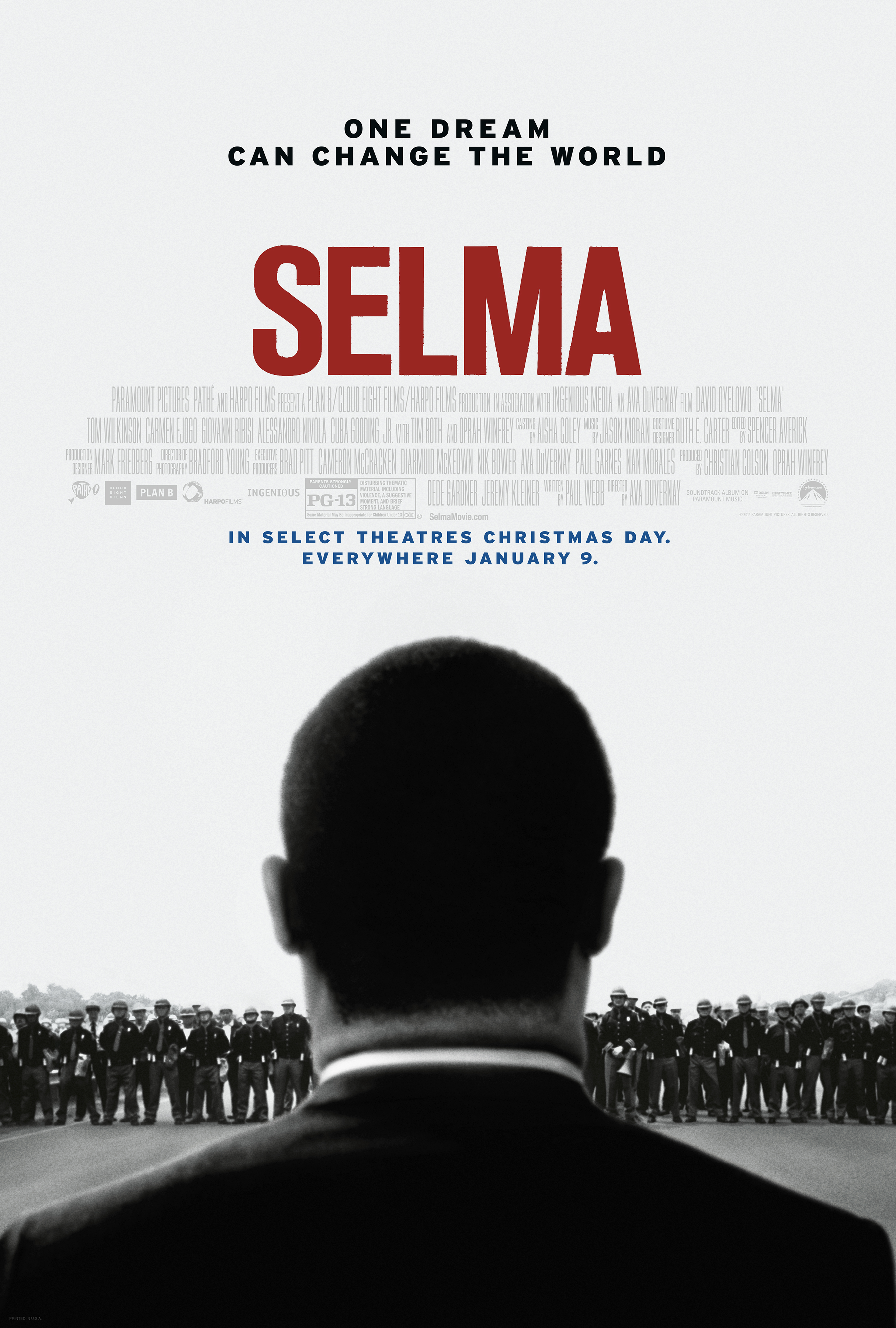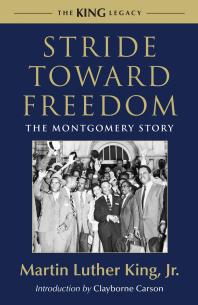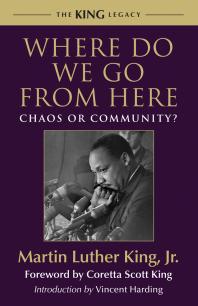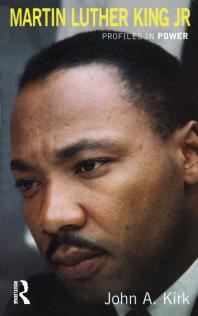
Martin Luther King, Jr. (January 15, 1929 - April 4, 1968) was an influential minister and civil rights activist. Starting with the 1955 Montgomery bus boycott, King became a visible leader of the Civil Rights Movement, using non-violent protests and soaring rhetoric to campaign for the civil rights of black Americans and the economic rights of the poor. King was assassinated in 1968 as he planned with Poor People's Campaign.
Martin Luther King Jr. Day is now celebrated as a federal holiday on the third Monday of January. The campaign for a holiday in commemoration of King started shortly after his death and came to an unsuccessful vote in the US House of Representatives in 1979. The campaign for the creation of the holiday was bolstered by Stevie Wonder's hit single "Happy Birthday," released in 1980. A federal law creating the holiday was successfully passed in 1983 and signed by President Reagan.
Below are resources discussing the legislative history of the law creating the Martin Luther King Jr. Holiday and the life and work of King himself.

The Birthday of Martin Luther King, Jr. became a federal holiday in 1983 with the passage of P.L. 98-144 (97 Stat. 917).
 Selma
by
Paramount Pictures
Selma
by
Paramount Pictures
 Stride Toward Freedom
by
Martin Luther King; Clayborne Carson (Introduction by); Martin Luther King
MLK's classic account of the first successful large-scale act of nonviolent resistance in America: the Montgomery bus boycott. A young Dr. King wrote Stride Toward Freedom just 2 years after the successful completion of the boycott. In his memoir about the event, he tells the stories that informed his radical political thinking before, during, and after the boycott--from first witnessing economic injustice as a teenager and watching his parents experience discrimination to his decision to begin working with the NAACP. Throughout, he demonstrates how activism and leadership can come from any experience at any age. Comprehensive and intimate, Stride Toward Freedom emphasizes the collective nature of the movement and includes King's experiences learning from other activists working on the boycott, including Mrs. Rosa Parks and Claudette Colvin. It traces the phenomenal journey of a community and shows how the 28-year-old Dr. King, with his conviction for equality and nonviolence, helped transform the nation and the world. This book was published with two different covers. Customers will be shipped one of them at random.
Stride Toward Freedom
by
Martin Luther King; Clayborne Carson (Introduction by); Martin Luther King
MLK's classic account of the first successful large-scale act of nonviolent resistance in America: the Montgomery bus boycott. A young Dr. King wrote Stride Toward Freedom just 2 years after the successful completion of the boycott. In his memoir about the event, he tells the stories that informed his radical political thinking before, during, and after the boycott--from first witnessing economic injustice as a teenager and watching his parents experience discrimination to his decision to begin working with the NAACP. Throughout, he demonstrates how activism and leadership can come from any experience at any age. Comprehensive and intimate, Stride Toward Freedom emphasizes the collective nature of the movement and includes King's experiences learning from other activists working on the boycott, including Mrs. Rosa Parks and Claudette Colvin. It traces the phenomenal journey of a community and shows how the 28-year-old Dr. King, with his conviction for equality and nonviolence, helped transform the nation and the world. This book was published with two different covers. Customers will be shipped one of them at random.
 Where Do We Go from Here
by
Martin Luther King; Coretta Scott King (Foreword by); Vincent Harding (Introduction by)
In 1967, Dr. Martin Luther King, Jr., isolated himself from the demands of the civil rights movement, rented a house in Jamaica with no telephone, and labored over his final manuscript. In this prophetic work, which has been unavailable for more than ten years, he lays out his thoughts, plans, and dreams for America's future, including the need for better jobs, higher wages, decent housing, and quality education. With a universal message of hope that continues to resonate, King demanded an end to global suffering, asserting that humankind-for the first time-has the resources and technology to eradicate poverty.
Where Do We Go from Here
by
Martin Luther King; Coretta Scott King (Foreword by); Vincent Harding (Introduction by)
In 1967, Dr. Martin Luther King, Jr., isolated himself from the demands of the civil rights movement, rented a house in Jamaica with no telephone, and labored over his final manuscript. In this prophetic work, which has been unavailable for more than ten years, he lays out his thoughts, plans, and dreams for America's future, including the need for better jobs, higher wages, decent housing, and quality education. With a universal message of hope that continues to resonate, King demanded an end to global suffering, asserting that humankind-for the first time-has the resources and technology to eradicate poverty.
 Martin Luther King, Jr.: Apostle of Militant nonviolence
by
James A. Colaiaco
In this exemplary work of scholarly synthesis the author traces the course of events from the emergence of Martin Luther King, Jr. as a national black spokesman during the Montgomery bus boycott to his radical critique of American society and foreign policy during the last years of his life. He also provides the first in-depth analysis of King's famous Letter from Birmingham Jail - a manifesto of the American civil rights movement and an eloquent defence of non-violent protest.
Martin Luther King, Jr.: Apostle of Militant nonviolence
by
James A. Colaiaco
In this exemplary work of scholarly synthesis the author traces the course of events from the emergence of Martin Luther King, Jr. as a national black spokesman during the Montgomery bus boycott to his radical critique of American society and foreign policy during the last years of his life. He also provides the first in-depth analysis of King's famous Letter from Birmingham Jail - a manifesto of the American civil rights movement and an eloquent defence of non-violent protest.
 Martin Luther King Jr
by
John A. Kirk
Combining the latest insights from KIng biographies and movement histories, this book provides an up-to-date critical analysis of the relationship between King and the wider civil rights movement. Delivering a fresh perspective on the relationship between 'the man and the movement', Kirk argues that it is the interactionbetween national and local movement concerns that is essential to understanding King's leadership and black activism in the 1950s and 1960s. Kirk examines King's strengths and his limitations, and weighs the role that king played in then movement alongside the contributions of other civil rights organizations and leaders, and local civil rights activists. Suitable for undergraduate courses in 20th century US history.
Martin Luther King Jr
by
John A. Kirk
Combining the latest insights from KIng biographies and movement histories, this book provides an up-to-date critical analysis of the relationship between King and the wider civil rights movement. Delivering a fresh perspective on the relationship between 'the man and the movement', Kirk argues that it is the interactionbetween national and local movement concerns that is essential to understanding King's leadership and black activism in the 1950s and 1960s. Kirk examines King's strengths and his limitations, and weighs the role that king played in then movement alongside the contributions of other civil rights organizations and leaders, and local civil rights activists. Suitable for undergraduate courses in 20th century US history.